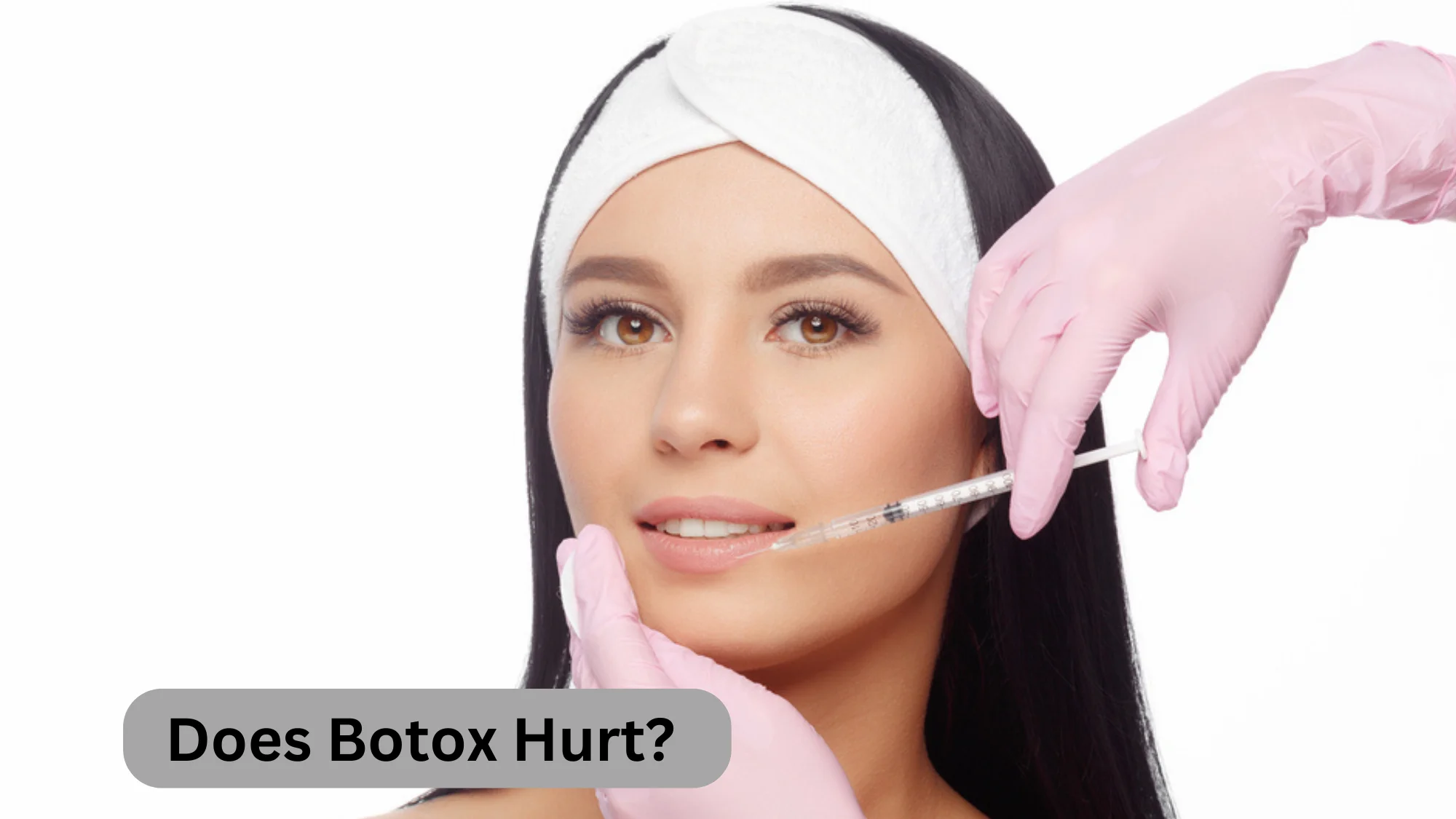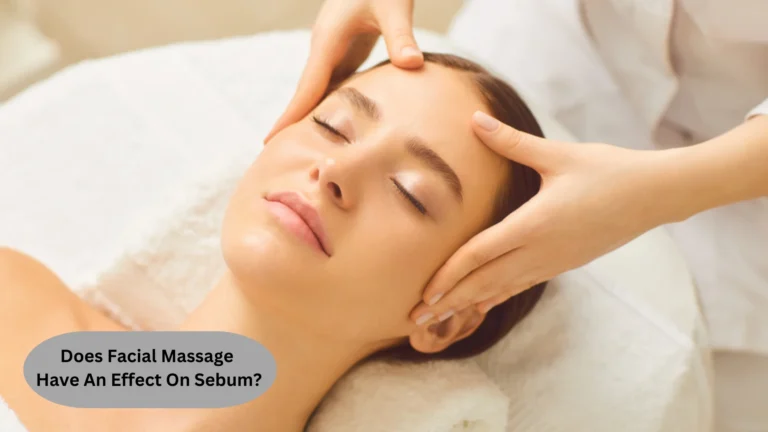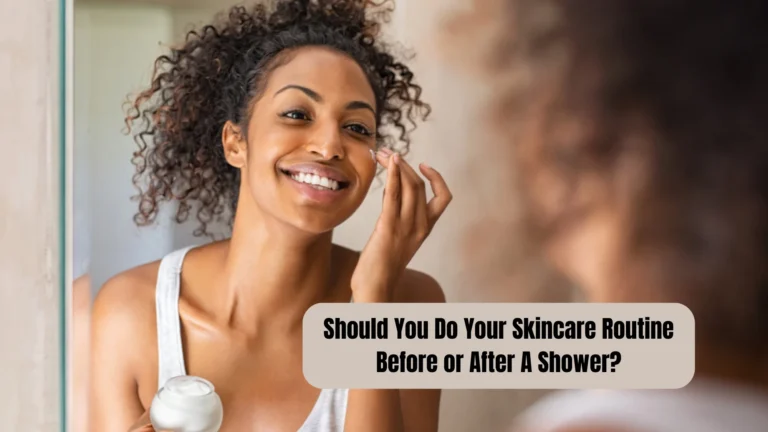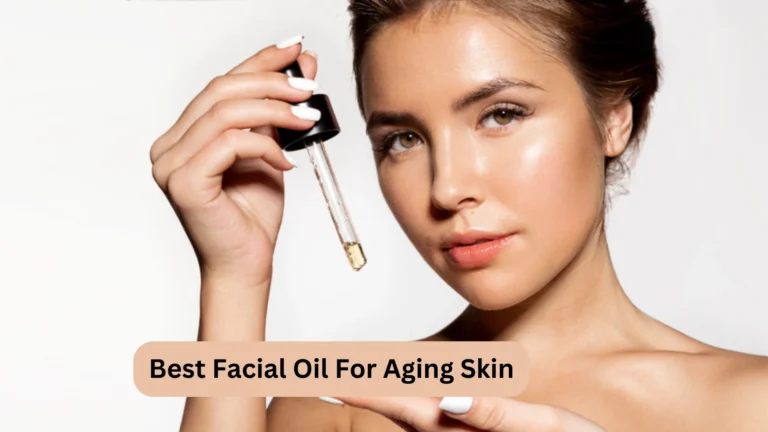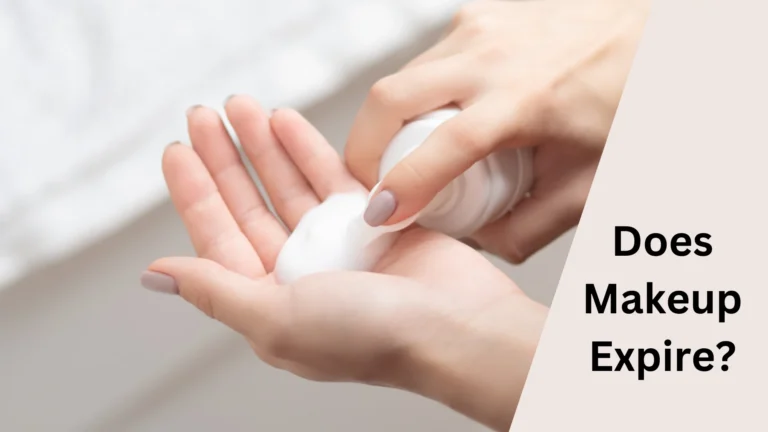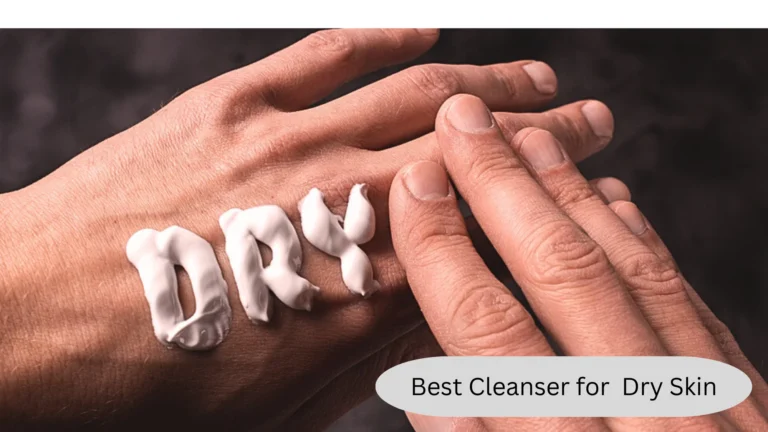Does Botox Hurt? Here’s Everything You Need To Know About Botox!
Are you considering getting Botox but feeling overwhelmed about the pain? Don’t worry; you’re not alone! “does Botox hurt” is a common concern among those curious about this popular cosmetic procedure.
Luckily, Botox injections are painless. Botox needles are tiny; most patients only feel a slight pinch or prick, nothing serious. Some persons can experience a transient stinging sensation, although it usually disappears quickly. A topical anesthetic cream or cooling gel is given to the injection site to alleviate any discomfort.
In this article, I will address all of your queries about Botox. What does it feel like? What will you experience after getting Botox and some precautions? So, let’s begin!
Does Botox Hurt? Honest Answer
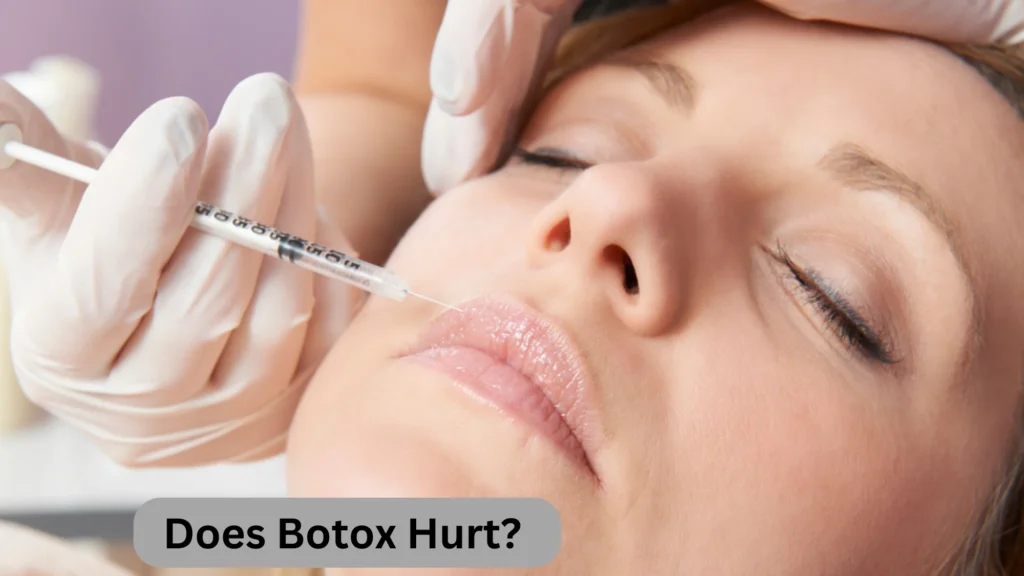
No, botox does not hurt. Botox injections may involve a little pinch or sting, but the discomfort is usually minimal and fleeting.
Botox is a fancy name for a cosmetic procedure that helps smooth out wrinkles and lines on your face. Sounds pretty cool. Now, you might be thinking, “Does it involve needles? Does it hurt?” Well, here’s the lowdown.
When you go for a Botox treatment, a trained professional will use a tiny needle to inject the Botox into specific muscles on your face. But don’t fret! Most people describe the sensation as a little pinch or a slight sting, like a mosquito bite. It’s rapid, and the discomfort is usually minimal.
A study published in the Journal of the American Academy of Dermatology found that 30% of people who received Botox injections reported mild to no pain at the injection site. The mild pain was described as a “pinprick” or “stinging” sensation.
Here’s the best part: the pain doesn’t last long! The whole process takes only a few minutes, and before you know it, you’ll be out of there, ready to show off your rejuvenated look. Some people even say they barely feel anything during the injections.
Now, let’s talk about the aftermath. After getting Botox, you might experience some mild redness or swelling around the injection sites, but that’s normal and usually goes away quickly. Some people might also have a slight headache or feel tender, but these side effects are temporary and go away independently.
How Botox Works?
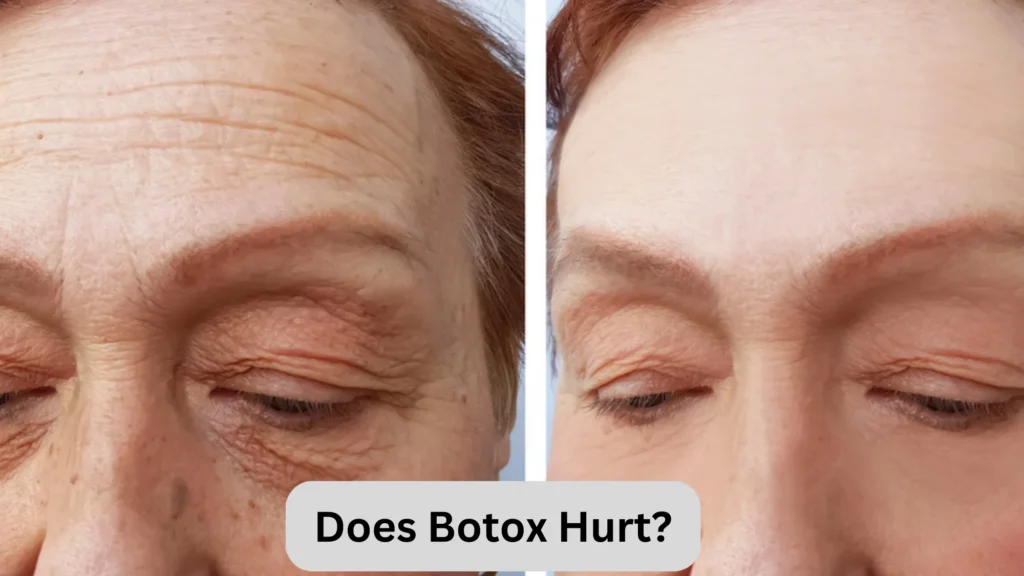
To understand how Botox works, let’s take a look at the connection between our nerves and muscles. When we make facial expressions, our nerves send signals to our muscles, causing them to contract. Over time, these repeated contractions can lead to the formation of wrinkles and lines on our face
Wrinkles form when specific facial muscles repeatedly contract, like when you smile or frown. Over time, these muscle contractions create lines and creases on your skin. That’s where Botox steps in.
Botox contains a natural protein called botulinum toxin, which comes from a certain bacteria. When it’s injected into your skin, it gets to work on the facial muscles that cause wrinkles.
Once injected Botox blocks the signals between your nerves and those muscles. This relaxation effect helps prevent the muscles from contracting too much, so the wrinkles and lines become less visible.
Think of Botox as a gentle “pause” button for your facial muscles. By giving them a break from constant movement, Botox helps smooth out the skin and gives you a more youthful appearance.
To gain more insights, we reached out to Dr. Sophia, a renowned dermatologist who has extensive experience with Botox treatments. Let’s hear what they have to say about its efficacy and safety.
“Botox has revolutionized the field of cosmetic dermatology. It’s a safe and effective treatment when administered correctly. However, it’s crucial to have a thorough consultation with your provider, discussing your expectations and any potential risks or side effects.”
Remember, Botox is not just about achieving a younger appearance. It can also be used to treat medical conditions such as excessive sweating, migraines, and muscle spasms. Always consult with a healthcare professional to determine if Botox is right for you
What Should I Expect During a Botox Appointment?
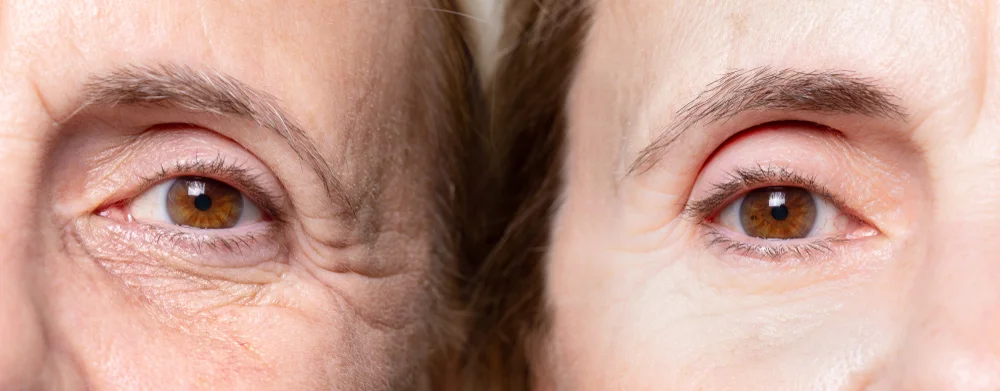
If you’ve been considering getting Botox or simply want to learn more about it, you’ve come to the right place. Let’s dicuss what you can expect during a Botox appointment.
Before we jump into the details, it’s important to note that a Botox appointment should always be carried out by a qualified medical professional, such as a dermatologist or a plastic surgeon. Safety first, right?
Now, let’s walk through what typically happens during a Botox appointment.
- Firstly, you’ll start by scheduling a consultation with your chosen practitioner. This is your opportunity to discuss your goals and concerns openly. The practitioner will assess your needs and determine if Botox is the right option.
- During the consultation, the practitioner will explain the procedure, including any potential risks or side effects. They’ll also answer any questions you may have, so come prepared with a list!
- Once you decide to proceed with the treatment, you’ll be escorted to a treatment room. The practitioner will ask you to sit or lie down comfortably.
- Before administering Botox, the practitioner may mark specific injection points on your face. This helps ensure accurate placement and precise targeting of the intended muscles. Don’t worry; the markings are temporary and will disappear soon after.
- Next, the practitioner will clean the area and prepare the Botox injection. Botox is a purified form of botulinum toxin, and it’s used to temporarily relax specific muscles in your face, reducing the appearance of wrinkles or fine lines.
- Now, it’s time for the injections. The practitioner will use a fine needle to inject small amounts of Botox into the predetermined points on your face. You might feel a slight pinch, but the discomfort is generally minimal.
- The number of injections will depend on your specific treatment plan and the areas being targeted. It usually takes just a few minutes to complete the injections.
- After the injections, the practitioner may gently massage the treated areas. This helps to distribute Botox evenly and further enhances its effects.
- Before you leave, the practitioner will provide you with aftercare instructions. It’s crucial to follow these instructions carefully to optimize your results and minimize any potential side effects.
Does Botox Cause Bleeding?
Let’s cut to the chase: The simple answer is no. Botox itself does not cause bleeding.
Botox has gained immense popularity in recent years as a non-surgical cosmetic procedure to reduce the appearance of wrinkles and fine lines. But with all the buzz, some concerns have been raised about potential side effects, including bleeding.
When performed by a licensed and experienced professional, Botox injections are generally safe. The injection process involves using an ultra-thin needle to deliver the neurotoxin directly into the targeted muscles. The needle is so fine that it typically does not cause any bleeding.
While there might be slight redness or minor bruising at the injection site, significant bleeding is highly unlikely.
Remember that bleeding after Botox injections is rare and usually minimal. Any bleeding that does occur is typically limited to small, superficial blood vessels near the surface of the skin. These tiny vessels can be damaged by the needle during the injection, resulting in minor bleeding.
The risk of bleeding can be further minimized by following proper injection techniques, such as:
Consult a Skilled and Experienced Professional
An experienced injector who is knowledgeable in the anatomy of the face and proficient in performing Botox injections can reduce the risk of complications.
Applying Pressure After the Injection
Gentle pressure applied to the injection site immediately after the injection can help minimize bleeding and bruising.
Avoiding Blood-Thinning Medications
Before the procedure, it is generally recommended to avoid medications that can thin the blood, such as aspirin, nonsteroidal anti-inflammatory drugs (NSAIDs), and certain supplements, as they may increase the risk of bleeding.
Does Botox Hurt After the Treatment?
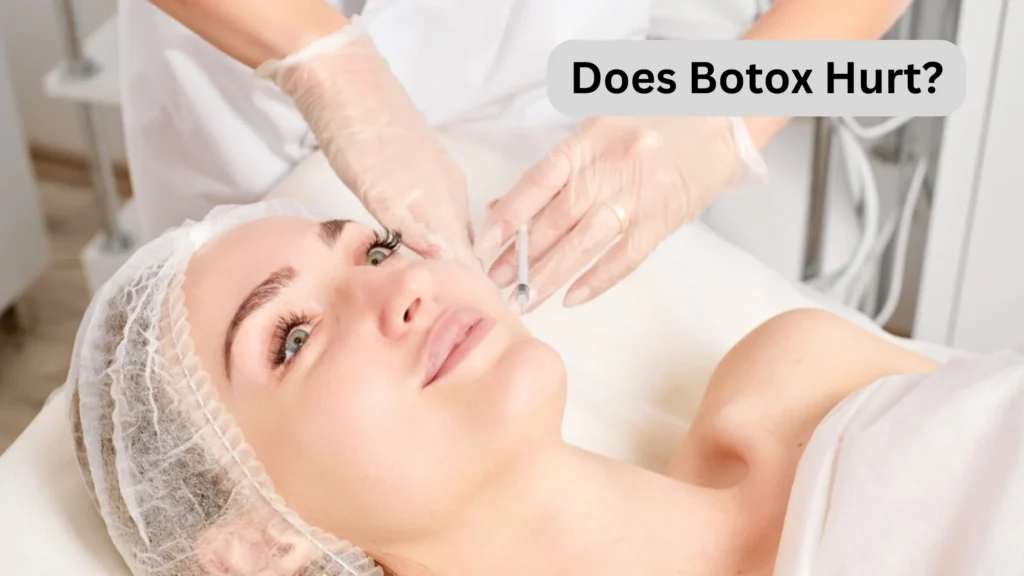
Let’s get to the heart of the matter. Does Botox hurt after the treatment? Well, the truth is that everyone’s pain tolerance and experience can vary. However, most people report feeling only minimal discomfort during and after the procedure.
To make your experience as comfortable as possible, dermatologists and medical professionals employ various numbing techniques. These can include topical anesthetics, ice packs, or even vibration devices. These methods help minimize any potential discomfort.
If you do experience any discomfort after your Botox treatment, there are several easy ways to manage it. Applying a cold compress or ice pack to the treated area can help reduce swelling and ease any discomfort. It’s also advisable to avoid any strenuous activities or touching the injection sites for the first 24 hours.
Side Effects of Botox – The Truth No One Talks About
While Botox can work wonders in reducing wrinkles and giving you a more youthful appearance, it’s crucial to know about its potential side effects. Let’s discuss some side effects of getting Botox you should know:
Temporary Bruising
After getting a Botox injection, you might experience some mild bruising at the injection site. Don’t worry, though, as it usually fades away within a few days.
Headaches
Occasionally, Botox can cause mild headaches, which typically resolve on their own without any specific treatment. If you experience persistent or severe headaches, it’s always best to consult your healthcare provider.
Facial Drooping
Rarely, Botox can cause temporary drooping or asymmetry of facial muscles. But fear not! This effect is usually temporary and goes away as the Botox wears off.
Flu-Like Symptoms
Some people may experience flu-like symptoms, such as a mild fever or fatigue, after receiving Botox injections. These symptoms are usually short-lived and disappear quickly.
Allergic Reactions
Although rare, allergic reactions to Botox can occur. If you notice symptoms like itching, rash, or difficulty breathing after the procedure, seek immediate medical attention.
Eyelid Ptosis
In some cases, Botox can cause temporary drooping of the eyelids. It might sound alarming, but rest assured that this side effect is generally short-term and resolves on its own.
Do’s and Don’t After Botox Treatment
Do’s After Botox Treatment
- Listen to your healthcare provider’s instructions carefully and follow them. They may provide specific guidelines based on your individual situation.
- Avoid lying down or bending over for at least four hours after the treatment. This helps prevent the migration of Botox to unintended areas.
- Avoid touching, rubbing, or massaging the treated areas immediately after the procedure. It can cause Botox to spread to unwanted areas.
- Avoid intense physical activity, exercise, or strenuous workouts for the first 24 hours after the treatment. Elevated heart rate and increased blood flow may contribute to bruising and swelling.
- If you experience mild swelling or bruising, you can apply cold compresses to the treated areas. Be sure to wrap the ice pack in a thin cloth to avoid direct contact with the skin.
- It takes time for Botox to take full effect. Wait at least 48 to 72 hours before assessing the results. Some individuals may require additional touch-up treatments for optimal outcomes.
Don’ts After Botox Treatment
- Avoid lying flat or placing your head in a downward position for about four hours after the treatment. This helps prevent the spread of Botox to unintended areas.
- Refrain from touching, rubbing, or applying pressure to the treated areas immediately after the procedure. It could cause Botox to migrate to other places and affect the results.
- Avoid vigorous exercise, heavy lifting, or activities that raise your heart rate for the first 24 hours after the treatment. Excessive movement may impact the distribution of Botox.
- Avoid facials, facial massages, or other cosmetic procedures that involve manipulation of the treated areas for at least two weeks after the Botox treatment. Give your skin time to heal and allow the Botox to settle properly.
- Refrain from consuming alcoholic beverages for at least 24 hours after the treatment. Alcohol can increase the risk of bruising and swelling.
- Avoid exposing yourself to excessive heat, such as saunas, steam rooms, or hot tubs, for the first 24 to 48 hours after the treatment. Heat can potentially activate Botox and cause it to spread to unwanted areas.
Can You Wash Your Face After Botox?
Yes, you can wash your face after getting Botox treatment. In fact, washing your face after Botox is entirely safe and encouraged. Maintaining a regular skincare routine is essential for healthy and glowing skin, even after getting Botox injections.
When it comes to washing your face after Botox, there are just a few things to keep in mind. First, it’s generally recommended to wait at least four to six hours after the procedure before washing your face. This allows the Botox to settle properly into the targeted muscles.
Once the waiting period is over, you can proceed with your usual skincare routine. Start by wetting your face with lukewarm water and applying a gentle cleanser. Be sure to use your fingertips to cleanse your face instead of harsh scrubbing motions or abrasive washcloths, as these can potentially irritate the treated areas.
After cleansing, rinse your face thoroughly and pat it dry with a soft towel. Avoid rubbing your face vigorously, as this may disturb the Botox placement. Instead, gently dab your skin dry to prevent any unnecessary pressure on the treated areas.
Following your face wash, you can proceed with the rest of your skincare regimen, including moisturizing, applying serums, or any other products you normally use.
Does Botox Hurt the Next Day?
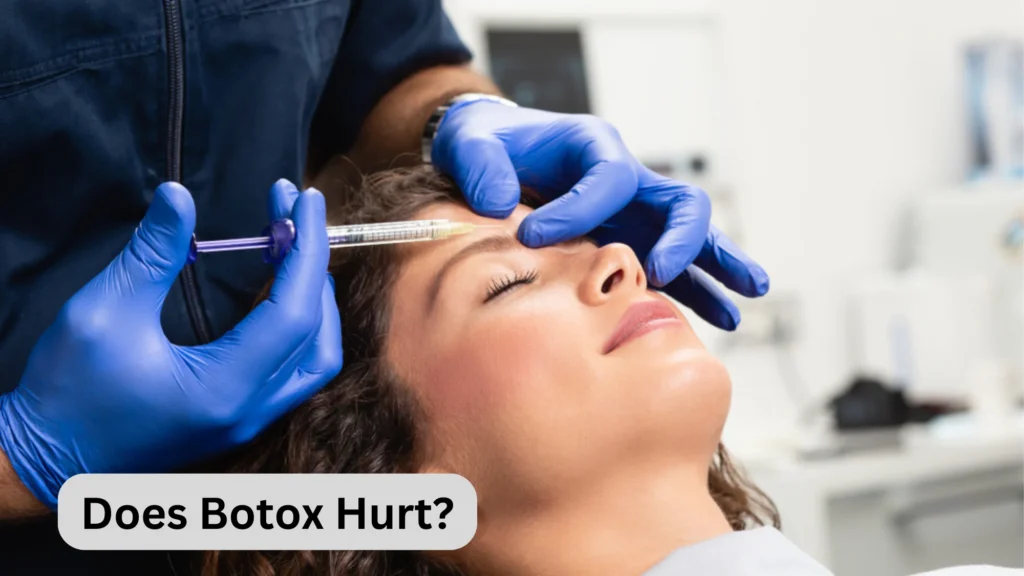
The honest answer is: It depends. While some individuals may experience mild soreness, redness, or bruising at the injection site, others may not have any noticeable side effects. Generally, any discomfort or pain experienced after Botox injections is often mild and temporary.
The injection process itself typically causes minimal discomfort, as a fine needle is used to administer the Botox into specific muscles. Some people may describe the sensation as a slight pinprick or a feeling of pressure.
After the injections, it’s possible to experience some tenderness or sensitivity in the treated areas. This discomfort is usually mild and short-lived, resolving within a few hours to a day.
If you experience any discomfort or pain after receiving Botox, avoiding touching or rubbing the treated areas is recommended, as this can potentially exacerbate the side effects.
Additionally, applying an ice pack to the area or taking over-the-counter pain relievers, as your healthcare provider recommends, can help alleviate any discomfort.
Does Botox Hurt Your Forehead?
Botox injections do not cause forehead pain. Most people simply feel a minor pinch or prick from the needles used. Some people may feel some discomfort or swelling at the injection site, although this is usually minor and resolves on its own within a few days.
Botox injections can cause significant adverse effects such as headaches, bruises, or allergic reactions in rare circumstances. If you notice any of these adverse effects, call your doctor straight away.
How Long Does Botox Last?
Once you get Botox, the duration of its effects depends on several factors, including the individual’s metabolism, the area being treated, and the dosage administered. In general, the effects of Botox typically last between three to six months.
After receiving a Botox injection, it usually takes a few days for the effects to become noticeable. The botulinum toxin, which is the active ingredient in Botox, works by temporarily blocking nerve signals to the muscles, reducing their ability to contract and causing temporary relaxation.
Over time, as the body metabolizes the toxin, the effects gradually wear off, and muscle activity returns to normal after a few months.
Why Did My Botox Injections Hurt?
One of my friend recently get a Botox treatment. She told me after getting this treatment she experienced mild pain. She discussed her situation with the doctor and he told him all the reasons why Botox injection hurt. let me share them with you. Here are some possible reasons why your Botox injection is hurting:
Needle Sensation
The injection itself involves a small needle being inserted into your skin, which can cause some pain or discomfort. The sensitivity varies from person to person, and some individuals are more sensitive to needle pricks.
Nerve Endings
Your skin contains many nerve endings, particularly in areas where Botox injections are commonly administered, such as the forehead or around the eyes. When the needle pierces the skin, it can stimulate these nerve endings, resulting in a brief sensation of pain.
Injection Technique
The skill and technique of the healthcare professional administering the injections can also influence the level of discomfort experienced. A more experienced practitioner can minimize pain by using appropriate injection techniques, such as using a smaller needle, applying a numbing cream, or injecting Botox slowly.
Injection Location
Certain areas of the face may be more sensitive than others. For example, injections near the temples or between the eyebrows may be more uncomfortable due to the thinner skin and proximity to nerves.
Anxiety Or Stress
Feeling anxious or tense before the procedure can make the injections feel more painful than they actually are. Stress and tension can make your muscles more sensitive, amplifying the discomfort.
Does Botox Hurt Around the Eyes?
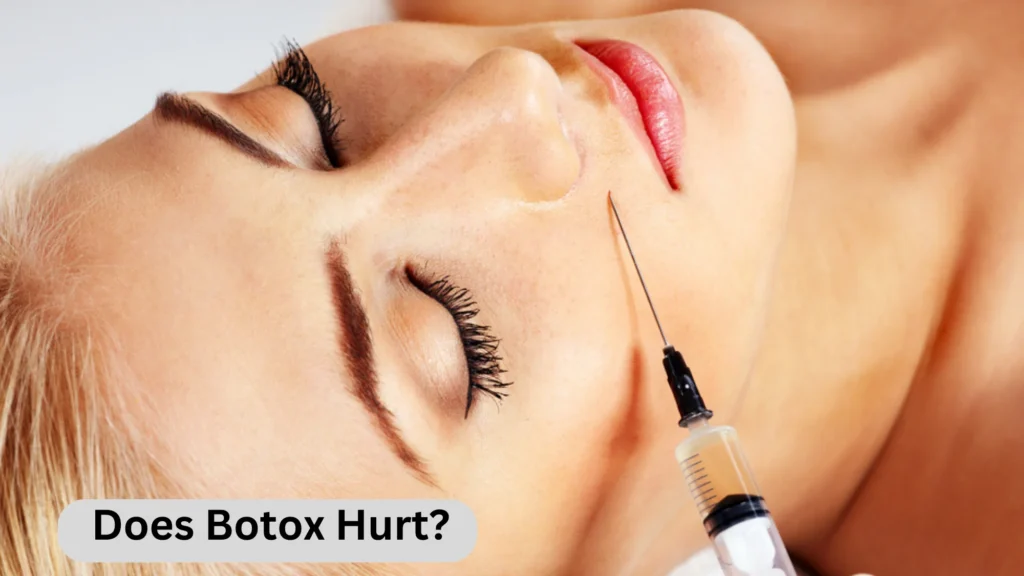
The experience of pain or discomfort during Botox injections around the eyes can vary from person to person. However, the consensus is that the injections are usually well-tolerated and cause minimal discomfort around the eyes.
Before the procedure, your doctor apply a topical anesthetic or use ice packs to numb the area and reduce any potential discomfort. This can help minimize the pain associated with the injections. So, you don’t have to worry about the pain around the eyes. Additionally, some Botox formulations are mixed with lidocaine, a local anesthetic, which can further reduce discomfort.
It’s worth noting that any post-injection discomfort is usually temporary and mild. Some individuals may experience slight bruising, swelling, or tenderness at the injection site, but these effects generally subside quickly.
How Much Does Botox Cost?
On average, Botox can range from $10 to $20 per unit. However, it’s important to note that the required units can vary based on individual needs and goals. For example, treating forehead lines may require around 10-20 units, while treating crow’s feet might require 5-15 units per side. A complete treatment for multiple areas can require 20-60 units or more.
Wrapping Up
To sum up, for those asking, does Botox hurt? No, it does not hurt in most cases. But, the experience of receiving Botox injections can vary from person to person. While some individuals may experience minimal discomfort or pain during the procedure, others may be slightly more uncomfortable. The pain associated with Botox injections is often described as a quick, sharp sensation, similar to a pinprick or a mosquito bite. However, the discomfort is generally short-lived and subsides quickly after the injection. It is crucial to consult with a qualified healthcare professional to discuss any concerns or questions before undergoing Botox treatment.
Also Read: Diamond Bright Skin Lightener Review
FAQs
How Long Does It Take For Botox to Work?
Botox injections typically start to work within 24 to 48 hours, and full results are usually seen within 10 to 14 days.
How Long Do Botox Results Last?
The results of Botox injections typically last for 3 to 6 months. However, the duration of effects can vary from person to person.
Is Botox Safe?
Botox injections are generally considered safe when performed by a qualified healthcare professional. However, as with any medical procedure, there is always a risk of side effects and complications.
How Many Times Can I Get Botox Injections?
There is no set limit on how often you can get Botox injections. However, talking to your doctor about how often you should contact them is crucial. Getting Botox injections too often can lead to developing antibodies to the botulinum toxin, making the treatment less effective.

